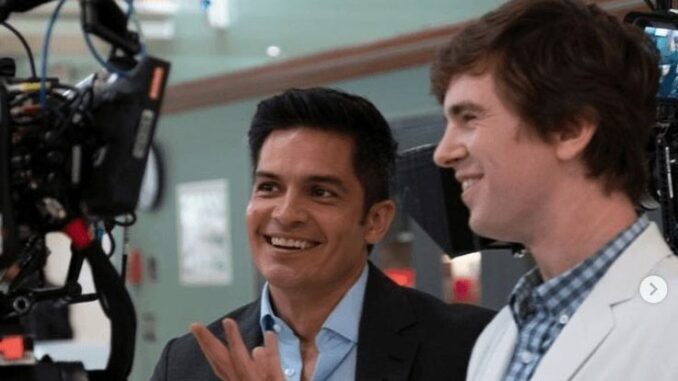
In the opening episode, The Good Doctor delivers a pivotal moment that sets the stage for Shaun Murphy’s extraordinary journey. As a young surgical resident with autism and savant syndrome, Shaun faces a daunting challenge: convincing the board of San Jose St. Bonaventure Hospital that he deserves a place on their team. Standing before a skeptical panel of doctors and administrators, Shaun must defend his abilities in a high-stakes meeting that could make or break his career. With his mentor, Dr. Aaron Glassman, by his side, Shaun’s raw honesty and unyielding determination shine through, proving that his unique perspective is an asset, not a liability. Freddie Highmore’s performance in this scene is electrifying—his measured delivery, nervous gestures, and unwavering resolve make Shaun’s struggle feel deeply personal and profoundly inspiring.
Created by David Shore (House), The Good Doctor follows Shaun as he navigates the high-pressure world of medicine while overcoming societal biases about autism. His photographic memory and ability to visualize complex medical scenarios allow him to make groundbreaking diagnoses, but his social challenges often put him at odds with colleagues. The hospital board scene is a defining moment, showcasing Shaun’s courage to stand up for himself and challenging viewers to rethink their assumptions about what makes a great doctor. Each episode builds on this foundation, delivering a mix of heart-pounding surgeries and emotional character arcs that keep audiences hooked.

Freddie Highmore, celebrated for roles in Bates Motel and Charlie and the Chocolate Factory, delivers a career-defining performance as Shaun. At just 25 when the series began, Highmore brings authenticity and depth to a character who could have been reduced to a stereotype. His portrayal captures Shaun’s intellectual brilliance and social struggles with remarkable nuance, earning him a Golden Globe nomination. In the boardroom scene, Highmore’s subtle expressions—nervous glances, clenched hands, and a quiet but fierce determination—convey Shaun’s inner strength, making his triumph all the more powerful. His chemistry with Richard Schiff, who plays the supportive yet conflicted Dr. Glassman, adds emotional richness to the series, grounding its medical drama in human connection.
The hospital board scene is more than a dramatic moment; it’s a manifesto for the series’ core message: differences are strengths. Shaun’s journey challenges stereotypes about autism, showing that his unique way of thinking allows him to see what others miss. The ensemble cast, including Antonia Thomas, Hill Harper, and Christina Chang, brings depth to the narrative, while the show’s realistic surgical scenes and evocative soundtrack create an immersive experience. With a 4.8/5 rating on review platforms and a global fanbase, The Good Doctor has become a cultural touchstone, resonating with viewers who see themselves in Shaun’s fight for acceptance.
Beyond its compelling drama, The Good Doctor tackles pressing issues like workplace discrimination, healthcare disparities, and the power of empathy. Shaun’s story is a beacon of hope for anyone who has ever felt judged or underestimated, making it a must-watch in today’s world. The series’ blend of medical precision and emotional depth ensures that every episode leaves a lasting impact, whether it’s the thrill of a life-saving surgery or the quiet beauty of a personal breakthrough.
